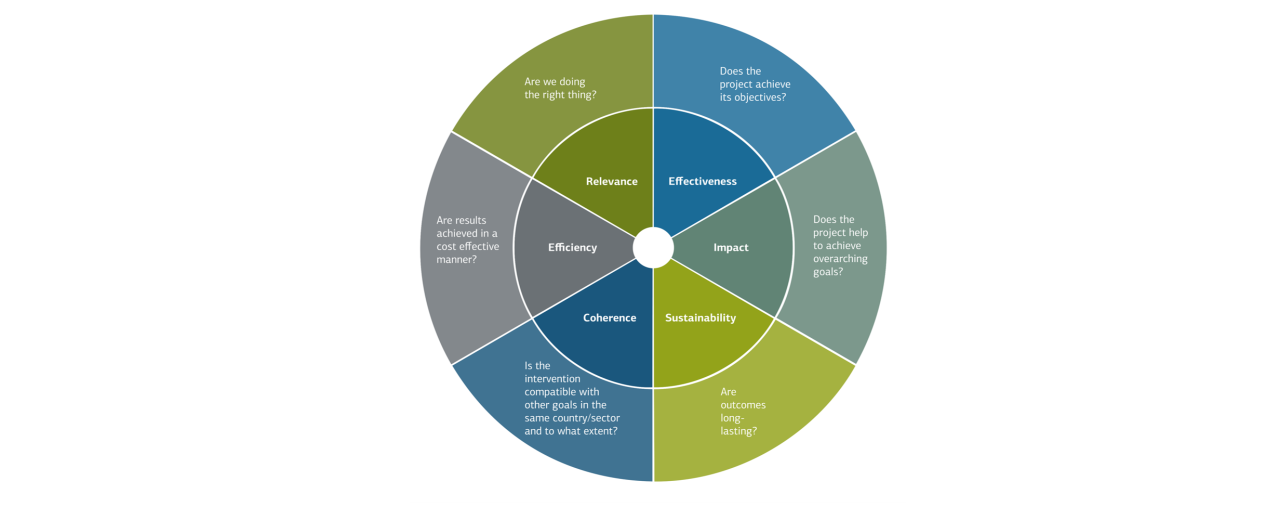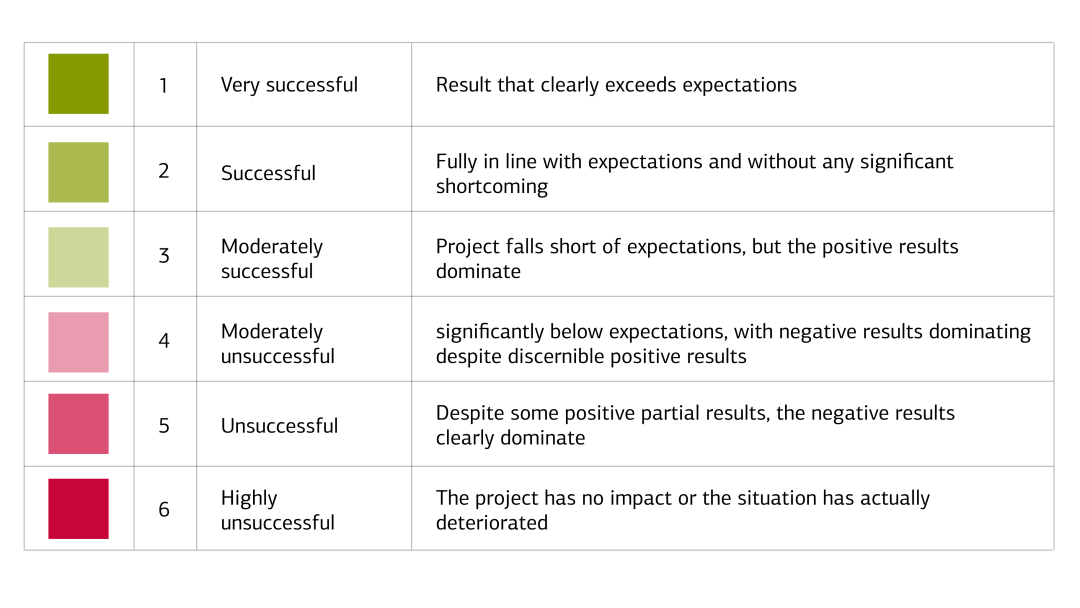Tip: Activate javascript to be able to use all functions of our website
The projects are evaluated in accordance with the standardised international evaluation criteria of the Development Assistance Committee of the Organisation for Economic Co-operation and Development (OECD-DAC).
Detailed explanations of the criteria:

To evaluate the success of the projects, grades are awarded for each criterion on a six-point scale. This is used to derive an overall rating for the success of the projects, which is formed from a project-specific weighting of the six graded individual criteria. Levels 1-3 of the overall rating characterise a "successful" project, levels 4-6 an "unsuccessful" project. It should be noted that a project can generally only be considered developmentally "successful" if the achievement of the project objective at outcome-level ("effectiveness"), the impact ("overarching developmental objective") and the sustainability are rated as at least "partially successful" (rating 3).
